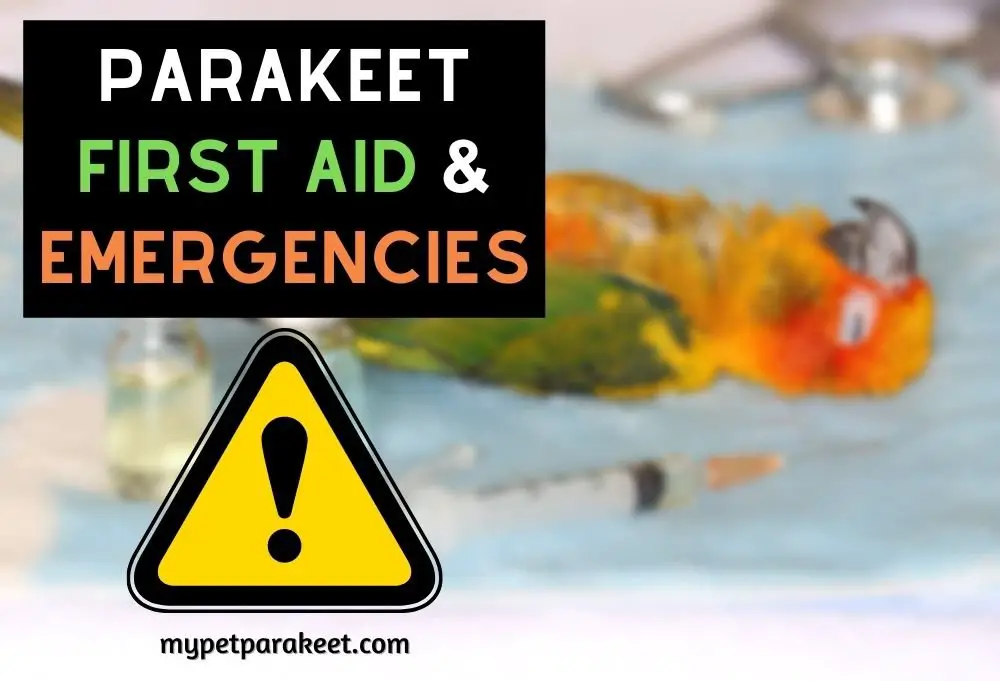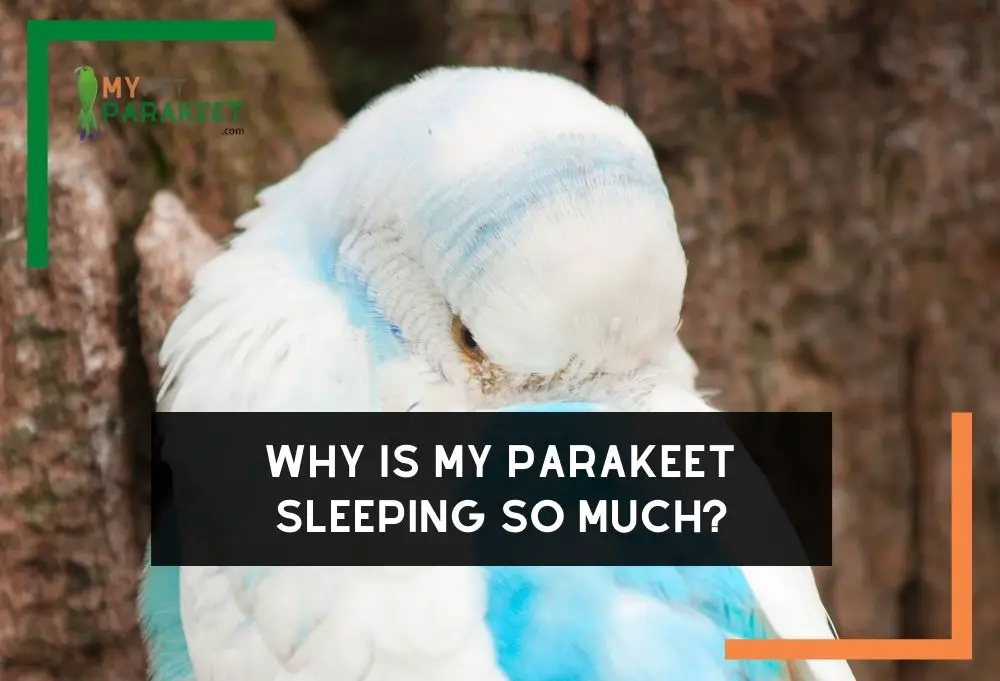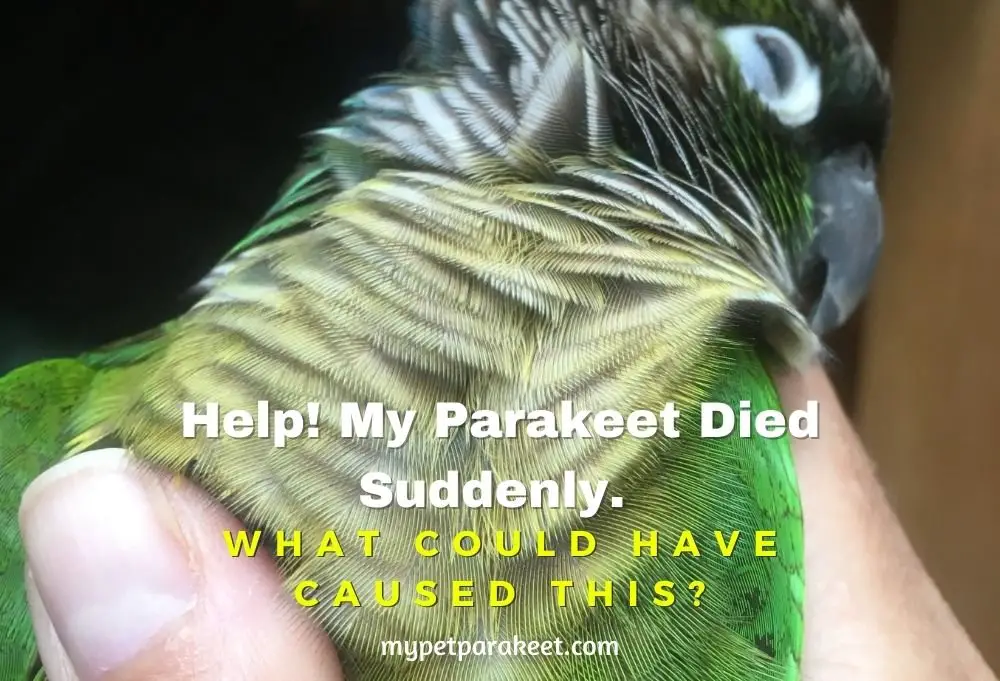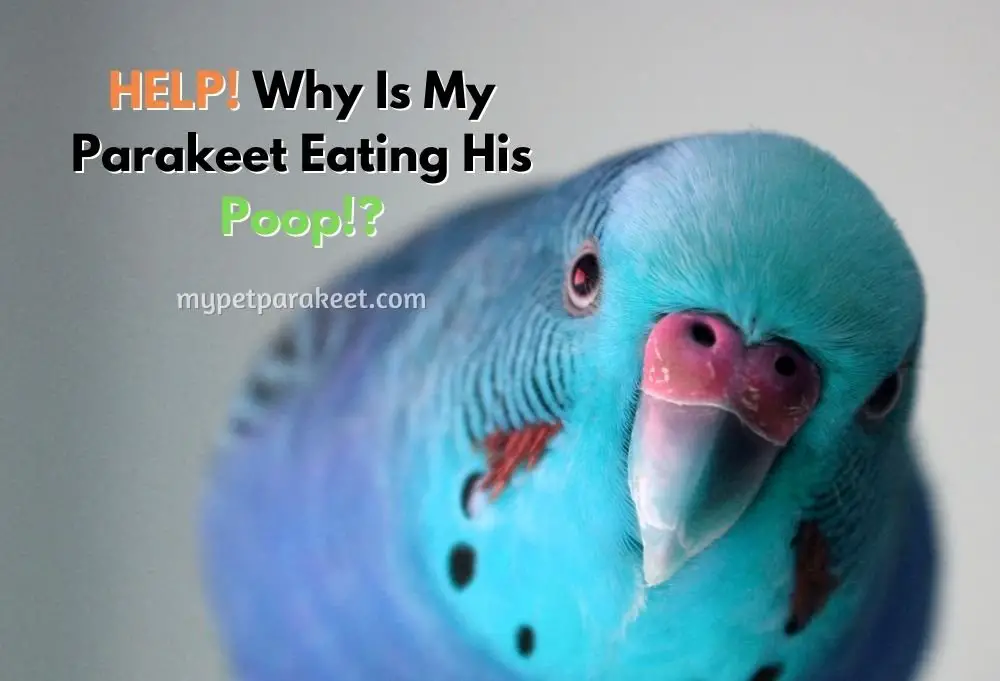So, your parakeet is acting a little different, and you might be wondering if your parakeet is sick or pregnant. If you have never had a pet bird lay eggs before, it is easy to assume that birds may exhibit signs of pregnancy in the way that humans or other mammals do.
However, it might surprise many to know that, unlike mammals, birds do not get pregnant. Birds produce amniotic eggs, which are coated with a shell.
These are produced in the ovary with a calcified shell, and then they are laid. Another interesting fact is that female birds often lay eggs whether fertilized or unfertilized, which is why people perform checks such as candling to figure out whether the egg is viable or not.
The symptoms you may be witnessing could indicate that your bird is indeed ready for breeding or exhibiting breeding behavior. Likewise, it could suggest something completely different as you suspect; your bird could be ill.
If you suspect that your bird is just sick, then it will most likely show signs such as a loss of appetite, lethargic behavior, or other signs of illness.
On the other hand, if your bird appears to be ready for breeding or producing eggs, then it may have started building a nest for itself, become more active, and is trying to find food for its upcoming young ones!
Signs Of Pregnancy In A Parakeet
- Physical Changes / Change In Appearance
- Weight Gain
- Mating behavior
Physical Changes Or Changes In Appearance
Physical changes that may indicate the bird is pregnant is a change in appearance. A female parakeet can have her crop turn to a yellow-orange color, and she will often develop a swollen abdomen which is due to the developing eggs inside her.
The way that birds reproduce is different than other animals because the calcified shell is already present on the egg when it is laid.
Weight Gain
A sign of pregnancy in a parakeet is often not noticeable, as even if your bird's belly becomes bloated, it is not easy to detect.
Once an egg is laid, expect your bird to go back to her regular size, but if she does not, and you are noticing extreme differences in her size, bring her to the veterinarian as she is likely dealing with a more serious issue such as egg binding.
Mating Behavior
Your parakeet's mating behavior, which would be displayed before laying her first egg and during, is the most tell-tale sign that your parakeet is about to lay eggs.
If you have both a male and female parakeet, the female is going to start displaying signs of being ready for breeding or nesting once they get acquainted, if it is mating season.
Observe The Male Parakeet
Has he been performing mating calls? Remember, this is the most predominant sign of breeding behavior in male parakeets. These mating calls are made by the male to attract females, and while they can be loud, it is common for these calls not to last long.
Another noticeable sign is that a male parakeet will start to become aggressive towards other male parakeets and may even attack a female if you don't separate them.
Has he been showing affection towards your female bird? If so, it is likely that they have mated and are now ready to start breeding.
Signs Your Parakeet Is Preparing To Lay Eggs – Observe The Female
If you notice that your bird is attempting to build herself a nest, even if you do not have much nesting material in her cage, she will make an attempt. For instance, I had foraging toys with bits of colorful paper for my parakeets to shred.
The female parakeet would shred this and use those bits of paper to prepare her nest if she does not have a nesting box.
So, even if you have a cage filled with toys, your female parakeet is going to start looking around for things like tissue paper and other decorative items.
At this point in time, you may want to purchase a nesting box. Otherwise, your parakeet will lay her eggs on the cage floor! This is more common than you may think.
You will notice that your female is trying to find a suitable place to lay her eggs, pacing around the cage frantically.
She will try to seek out a private and safe environment which is often why the owners notice their parakeets change in behavior and wonder, “is my parakeet pregnant or sick?”.
This behavior can be unsettling as your parakeet may become stressed due to the frustration.
Signs Your Parakeet May Be Sick
Parakeets are master disguisers of illness, and a lot of the time, you will need to pay very close attention to detect something is wrong with them.
If your parakeet is not about to lay eggs and you suspect that she is sick, here are some symptoms you might notice:
- Decrease In Appetite
- Increased Effort Breathing
- Panting
- Fluffed or Ruffled Feathers
- Decrease or Change In Color In Droppings
- Swelling of the Abdomen
Decrease In Appetite
If your bird is sick, it is very common for it to lose interest in food. Rather than eating the same amount every day, if your parakeet is sick, you will notice that there is a decrease in appetite and intake of food.
If this is noticed, take it to the veterinarian as soon as possible or bring in your bird for an examination by an avian vet.
Increased Effort Breathing
Increased effort in breathing is when your parakeet is struggling to breathe or is closing and opening its beak wide when breathing.
This is often the first sign that you notice before noticing other symptoms such as weight loss or panting.
The reason your parakeet could be struggling to breathe is that it is dealing with a respiratory infection. This is very serious and would require you to take a trip to your avian vet.
Panting
Similarly, panting is another sign that is noticed before other symptoms. Panting is when your bird is trying to catch its breath and is often a sign that your parakeet is sick.
However, panting is also seen in the summer as a way for your bird to cool down itself. So if you notice it in the winter, this may be another sign of illness.
It is possible that your parakeet is overheating and is not able to recover itself. Therefore, if you are seeing signs of panting in the winter, rather than thinking that it is just hot in your house or apartment, take notice and see if there is a different reason for this behavior, such as sickness.
Sometimes, providing fresh water and placing a fan nearby can help. If not, then it could be cause for concern.
Fluffed or Ruffled Feathers
In some cases, your parakeet may display fluffed up or ruffled feathers. This is usually done as a natural defense mechanism to protect the parakeet.
While this is not an indication that your parakeet is sick, it could indicate that your parakeet is frightened or scared of you or the environment.
Check this post for more information about parakeet body language and what certain gestures mean. It will be very useful in understanding your parakeet.
Decrease or Change In Color In Droppings
Droppings can tell us a lot about our own health, so it is no wonder they can tell us about our pet parakeet‘s health, too!
The change in droppings could be attributed to diet change or illness, so be very thorough in the information you give your veterinarian if they need to examine your bird.
Swelling of the Abdomen
As mentioned already, swelling of the abdomen could indicate that your female bird is suffering from egg-binding. But it is also important to note that the swelling may indicate an infection or sickness. In any case, if you see this symptom, talk to or take your bird to the avian vet for further examination and treatment.
If it is egg-binding and is left untreated, it can lead to death.
Prevention Tips For Both Scenarios
Keep your parakeet healthy with an appropriate, balanced diet and letting it flap its wings frequently for exercise. This is the best way to prevent illness.
You can also include a good probiotic such as this one. And ensure your parakeet is getting enough calcium to prevent egg-binding.
Whether your parakeet has been with a male parakeet or not, she will still lay eggs. So, if you do not wish to have any eggs which end up turning into newborn parakeets, i.e., viable eggs, you will want to keep your male and female parakeets apart.









